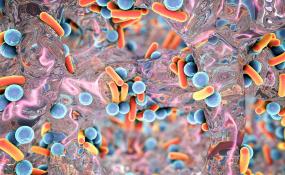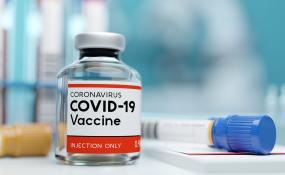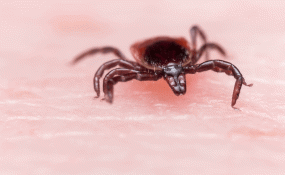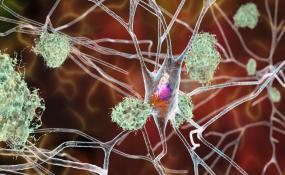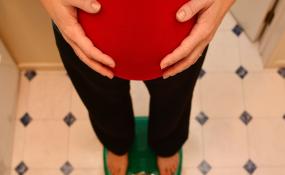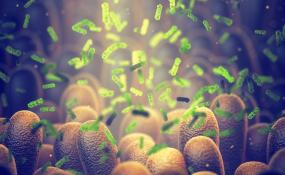Rutgers Health News
The donation will increase clinic hours for underserved communities across central New Jersey.
A Rutgers researcher leading a trial found that the novel combination antibiotic sulbactam-durlobactam combats dangerous pneumonia at least as well as the best currently approved treatment.
A new study by the Centers for Disease Control of children with profound autism, the most severe form of the condition, found that cases are increasing, and those most likely to be diagnosed are poor, female and non-white.
Animal studies indicate that a new COVID-19 vaccine developed at Rutgers may provide more durable protection against SARS-CoV-2 and its emerging variants than existing vaccines.
Rutgers issues recommendations for detection of neurologic Lyme disease by rheumatologists
Rutgers is researching a new health care model that emphasizes primary care and prevention over emergency care in underserved communities.
Mutating cells can prevent the spread of cancer by flipping themselves into a state of reduced activity called senescence. Cancer genes, however, can retaliate by reviving those cells so they can replicate again.
New Jersey’s first center of its kind aims to improve health outcomes and reduce the overall costs of care for an underserved population.
Increasing exposure to bomb blasts has shifted injury patterns and left thousands of veterans with irreparable damage, according to a Rutgers study.
Research findings from Rutgers, the University of Michigan, the University of Texas Southwestern, and the Medical University of South Carolina could save lives by enabling faster and more accurate identification of hospitalized patients who need liver transplants or are likely to recover.
Rutgers researchers propose new way to assess medical marijuana use.
People whose mothers were overweight during pregnancy and nursing may become obese as adults because early overnutrition rewires developing brains to crave unhealthy food, according to a Rutgers study in Molecular Metabolism.
A Rutgers expert discusses the importance of sleep — and how little we are getting.
Rutgers emergency medicine experts highlight the importance of this lifesaving procedure for children’s activities.
Rutgers research that may eventually enable far earlier autism diagnoses shows that typically developing infants perceive audio-video synchrony better than high-risk for autism infants.
The Rutgers School of Nursing has been awarded nearly $1 million by the U.S. Department of Health and Human Services’ Health Resources and Services Administration (HRSA) to help address a statewide nursing shortage that was exacerbated during the COVID-19 pandemic.
What’s the proper treatment for constant, inexplicable pain in the face, jaw or head that defies conventional dental treatment?
A Rutgers analysis of U.S. stroke deaths from 1975 to 2019 has found both a dramatic decline and the potential for an important resurgence.
Researchers have traced a previously observed link between microscopic organisms in the digestive tract — collectively known as the gut microbiome — and multiple sclerosis (MS).
A Rutgers expert provides guidance to those who might be at increased risk during pregnancy.
A Rutgers-led study of nearly 1,350 patients receiving care for HIV at nine different US clinics has identified steps healthcare teams can take to identify and treat more sexually transmitted infections (STIs).
Despite the refreshing changes the season brings as the temperature slowly drops, it also comes with the seasonal flu. Just about anyone is susceptible to flu viruses, but cancer patients can be especially vulnerable.
A Rutgers-led study of more than 2,700 pairs of twins showed the health consequences of drinking in adolescence can last for decades.
Microbiologist Emanuel Goldman explains why fomites are unlikely to get you sick this fall.


